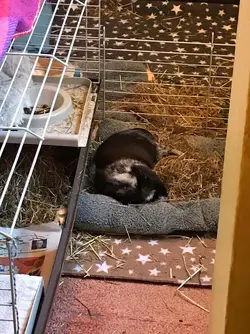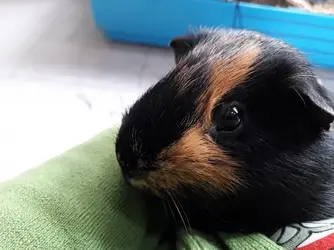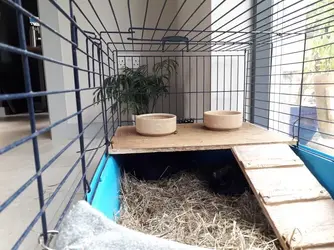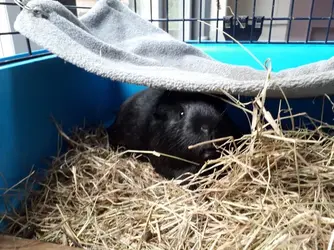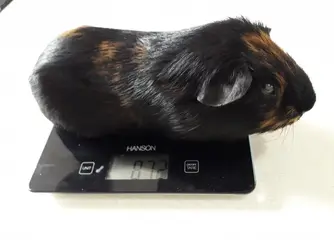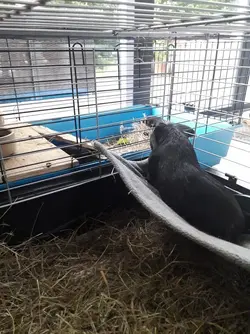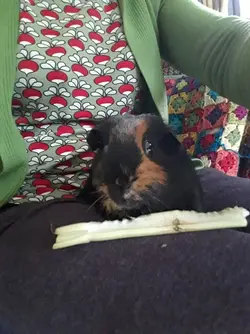JenTM
New Born Pup
Hi there!
We have 3 boy piggies (Jam, Chutney and Cracker) and Cracker has always been the slimmest. However, over the past 9 months-year he has been steadily losing weight, despite eating plenty. He is drinking much more than normal, and has been treated for two UTIs (with two different antibiotics), after developing smelly and blood stained urine. He has had a bladder scan, showing no bladder stones or sludge and a normal sized bladder. He has also had his urine tested and at that time, there was bacteria present, but it didn't appear sludgy. He had a couple of weeks on supplementary liquid food, but did not gain weight on it, though he enjoyed it.
Given his consistent, slow weight loss, and the other symptoms, I wonder if he is diabetic, but is there anything else that we should consider? He also has a cataract in one eye. Poor piggie, he's clearly the runt of the litter! Chutney is a giant fat pig and quite a bully, but they live in the house and Cracker gets plenty of food despite Chutney's resource guarding habits. We considered neutering Chutney to try to ease tensions, but I've read that doesn't affect guinea behaviour.
I'm pleased to read that diabetes in kidneys is treatable by diet and medication, so keen to take him back to the vet for further investigation. He's only 2.5 and I don't want to lose him so young.
We have 3 boy piggies (Jam, Chutney and Cracker) and Cracker has always been the slimmest. However, over the past 9 months-year he has been steadily losing weight, despite eating plenty. He is drinking much more than normal, and has been treated for two UTIs (with two different antibiotics), after developing smelly and blood stained urine. He has had a bladder scan, showing no bladder stones or sludge and a normal sized bladder. He has also had his urine tested and at that time, there was bacteria present, but it didn't appear sludgy. He had a couple of weeks on supplementary liquid food, but did not gain weight on it, though he enjoyed it.
Given his consistent, slow weight loss, and the other symptoms, I wonder if he is diabetic, but is there anything else that we should consider? He also has a cataract in one eye. Poor piggie, he's clearly the runt of the litter! Chutney is a giant fat pig and quite a bully, but they live in the house and Cracker gets plenty of food despite Chutney's resource guarding habits. We considered neutering Chutney to try to ease tensions, but I've read that doesn't affect guinea behaviour.
I'm pleased to read that diabetes in kidneys is treatable by diet and medication, so keen to take him back to the vet for further investigation. He's only 2.5 and I don't want to lose him so young.
